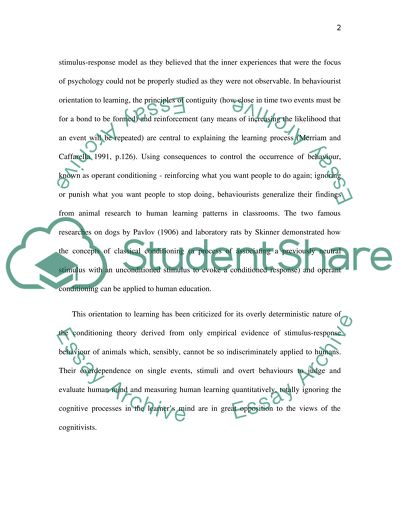Cite this document
(“Critical Evaluation of Andragogy against Other Learning Theories in Essay”, n.d.)
Retrieved from https://studentshare.org/education/1507689-critical-evaluation-of-andragogy-against-other-learning-theories-in-relation-to-adult
Retrieved from https://studentshare.org/education/1507689-critical-evaluation-of-andragogy-against-other-learning-theories-in-relation-to-adult
(Critical Evaluation of Andragogy Against Other Learning Theories in Essay)
https://studentshare.org/education/1507689-critical-evaluation-of-andragogy-against-other-learning-theories-in-relation-to-adult.
https://studentshare.org/education/1507689-critical-evaluation-of-andragogy-against-other-learning-theories-in-relation-to-adult.
“Critical Evaluation of Andragogy Against Other Learning Theories in Essay”, n.d. https://studentshare.org/education/1507689-critical-evaluation-of-andragogy-against-other-learning-theories-in-relation-to-adult.


